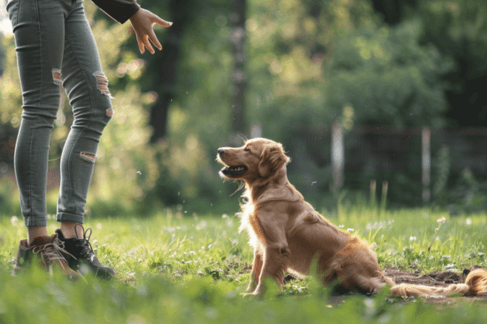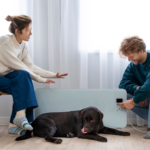When it comes to raising a well-rounded and well-behaved canine companion, socialization plays a crucial role. While individual training sessions with your dog are valuable, group dog training offers unique advantages that can significantly contribute to your pup’s development. In this article, we’ll delve into the benefits of group dog training and why socializing your furry friend matters.
Encourages Positive Interaction
Group dog training provides an opportunity for your pup to interact with other dogs in a controlled environment. These interactions help them learn proper social cues and develop essential communication skills. Through playful interactions with fellow canines, your dog learns how to navigate various social situations, promoting positive behaviour and reducing the likelihood of aggression or fear toward other dogs in the future.
Enhances Obedience in Distraction-filled Environments
Training your dog in a group setting exposes them to distractions that mimic real-world scenarios. This environment challenges your pup to focus on you, the handler, amidst the presence of other dogs, people, and noises. Learning to obey commands in such distractions enhances their obedience skills, making them more responsive and reliable companions in everyday situations like walks in the park or visits to the vet.
Builds Confidence and Reduces Anxiety
Regular exposure to new environments and interactions with different dogs and people can help build your dog’s confidence. Group dog training sessions provide a safe and supportive space for your pup to explore and adapt to new experiences, reducing anxiety and fear responses. As they become more comfortable in varied settings, they’re less likely to exhibit anxious behaviours such as excessive barking, hiding, or aggression.
Fosters Bonding Between Owner and Dog
Group training isn’t just beneficial for your dog; it also strengthens the bond between you and your furry companion. Working together as a team in a group setting strengthens the communication and trust between you and your pup. The shared experience of learning and overcoming challenges fosters a deeper connection, making training sessions a rewarding and enjoyable activity for both of you.
Provides Learning from Peer Behavior
Dogs are incredibly observant creatures, and they learn by observing the behaviour of their peers. In a group training class, your dog has the opportunity to observe how other dogs respond to commands and interact with their owners. This observational learning can be highly beneficial, as your pup may mimic the behaviours of well-trained dogs, accelerating their own learning process.
Offers Professional Guidance and Support
Group dog training classes are typically led by experienced trainers who can provide personalized guidance and support based on your dog’s individual needs. These professionals can offer valuable insights into your dog’s behaviour and provide tailored training techniques to address specific challenges. Additionally, the supportive atmosphere of a group class allows you to connect with other dog owners who may be facing similar issues, providing a network of support and encouragement.
Conclusion
Group dog training offers a multitude of benefits for both you and your furry friend. From encouraging positive interactions and enhancing obedience to building confidence and fostering bonding, the advantages of socializing your pup in a group setting are numerous.
By investing in group training sessions, you’re not only equipping your dog with essential skills but also enriching your relationship and creating a happier, more well-adjusted canine companion. So, consider enrolling your pup in a group training class today and watch them thrive in a supportive and social environment.
If you are looking for the best dog training in Toronto, you can rely on K9 Academy. For more information, visit the website here: https://www.k9academytraining.ca/group-training


